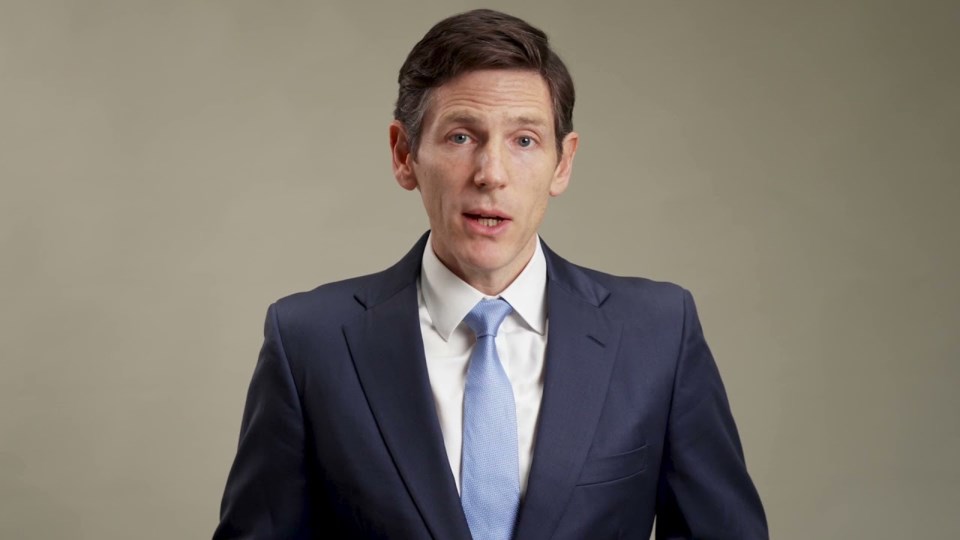Glencore, the Swiss mining and commodities trading giant, is not taking no for an answer from Teck Resources (TSX:TECK.B, NYSE:TECK) on a US$23 billion merger proposal that Teck’s board of directors publicly rejected this morning.
Glencore is still hoping that Teck’s wider shareholder base and Norman Keevil – a key stakeholder -- will consider the offer before an April 26 special meeting, at which Teck’s shareholders are to approve a schism that will split Teck into two companies – one for its metallurgical coal business and one for its metals business – and phase out its dual class structure.
The offer Glencore is making creates better value for shareholders all around than the one Teck is currently proposing, Glencore CEO Gary Nagle said in a teleconference this morning, following Teck's rejection of Glencore's offer.
“We encourage all Teck shareholders to look for a proposal that’s created the most value for all of them and we believe ours creates significantly more value than the transaction being proposed by Teck,” Angle said.
Glencore is offering 7.78 Glencore shares for each Teck Class B subordinate voting share and 12.73 Glencore shares for each Teck Class A common share.
Teck’s board has “unanimously rejected” what it called an “unsolicited and opportunistic acquisition proposal.”
“We believe that our planned separation creates a greater spectrum of opportunities to maximize value for Teck shareholders,” said Teck chairperson Sheila Murray.
Teck is tightly held by the Keevil family through a dual-class structure that gives class A shareholders 100 votes to every class B share.
Norman Keevil and his family businesses are key players, and Nagle conceded in his teleconference call Monday that getting Keevil on board is critical. He dismissed the idea Glencore might go "hostile" by taking the offer directly to shareholders.
"We can't go hostile under the current shareholder structure, number one," Angle said. "Number two is we respect very deeply the history of the company and Dr. Keevil and his family's legacy.
“Dr. Keevil is a critical stakeholder in this, and we certainly would not bypass him or go around him.We respect what he’s built, and we will seek rather to engage further with him around the potential value creation that this proposal brings versus the current proposal on the table.”
The current proposal on the table he referred to – announced February 21 – would split Teck into two separate companies and phase out the company’s dual share structure.
The company’s B.C. metallurgical coal mines would be spun into Elk Valley Resources Ltd., while Teck Metals Corp. would keep the company’s base metals assets, which include copper mines in B.C. and Chile, a zinc mine in Alaska and a lead-zinc smelter in Trail, B.C.
In an offer to Teck, Glencore proposes what it calls a "merger and demerger," with the creation of two companies.
MetalsCo would be a standalone “transition metals” company combining Glencore’s and Teck’s metal assets, which includes copper and nickel mines. CoalCo would be a standalone coal and steel business. The new MetalsCo company would have its industrial head office located in Canada.
But unlike the Teck proposal, Glencore's structuring would not see profits funneled between the coal and metal businesses.
“Unlike the proposed Teck separation, the proposed merger demerger would not require any intercompany financial arrangements between the metals and coal businesses going forward,” Glencore says in its letter to Teck's board of directors.
Glencore owns a number of nickel and copper mines and development projects in Eastern Canada. But it also owns thermal coal mines in Australia, Columbia and South Africa, and more ESG-minded investors want no part of thermal coal, which is burned to generate power and a significant producer of greenhouse gases.
“The Glencore proposal would expose Teck shareholders to a large thermal coal business, an oil trading business and significant jurisdictional risk, all of which would negatively impact the value potential of Teck’s business, is contrary to our ESG commitments and would transfer significant value to Glencore at the expense of Teck shareholders,” Teck CEO Jonathan Price said in a news release today.
"The spun-out business envisioned by Glencore would be a majority thermal coal business of an unprecedented scale," Teck said in a press release. "Thermal coal mines are contrary to the global decarbonization agenda.
"The Glencore proposal would force Teck shareholders to hold massive thermal coal exposure, which would be value destructive, drive away current and future investors who cannot hold thermal coal assets, and result in Teck’s world-class steelmaking coal business trading at a discount."


